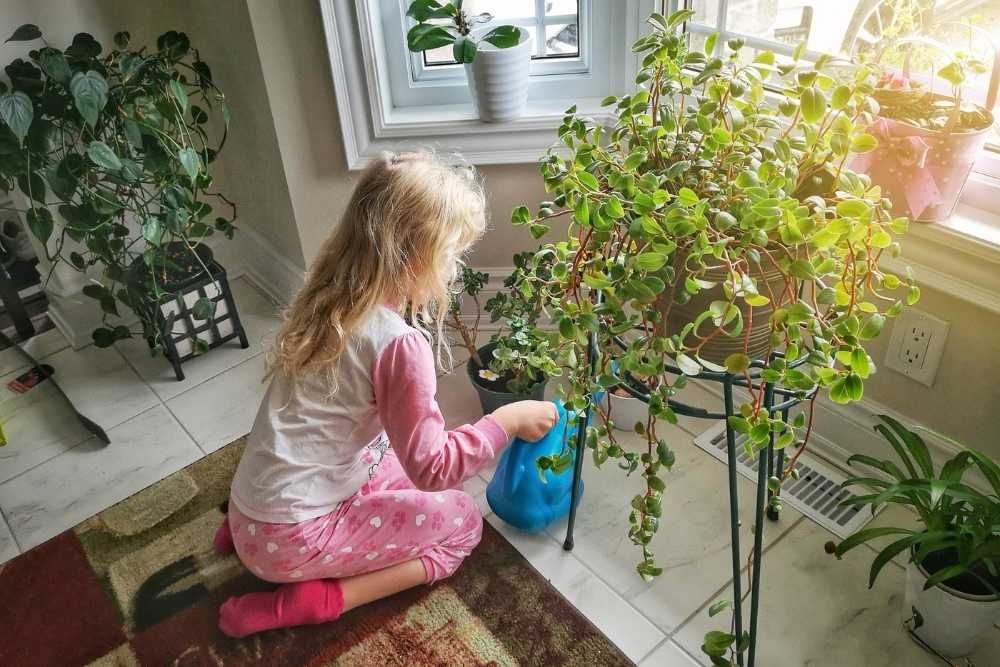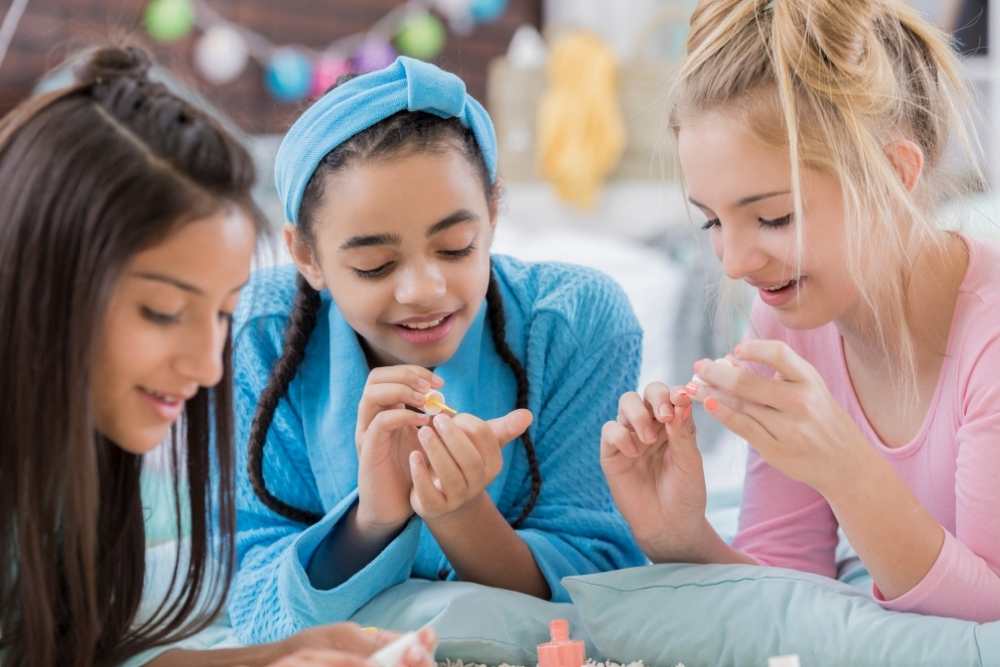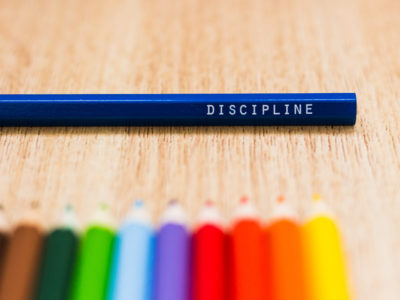Last Updated on June 29, 2022 by Rebecca Huff
Correcting Children has not been a cup of tea and I've made my share of mistakes. You'll read a few of them further down in this post. As you read through, keep an open mind, I'm sharing what worked for me and some things that didn't work. Correcting children is personal and between you and your family and only you can make the best decisions when it comes to your unique situation.
Say What You Mean and Mean What You Say
Have you ever been the uncomfortable observer of a parent trying to control a 3-year-old in the grocery store line? Maybe you were the parent! I know I have been on more than one occasion.
One of the most common mistakes we parents make is to threaten and repeat to our children. Sometimes I hear myself talking to my kids and realize, I am nagging.
When I hear myself say, “I already told you once” or “What did I just say?” I realize I am THAT parent! I have to give myself this little pep talk: “Say what you mean and mean what you say. If you are not going to follow through on that threat then save the stress for everyone and remain silent. At least your child will still believe you mean what you say!”
Making a habit of giving multiple “chances” only makes me look bad and makes my kid a gambler! “How many times can I do this before Mom actually sends me to my room?” Sometimes they know I'm not going to follow through. It's not easy to make them follow the rules.
When it comes to discipline one mistake I have made in the past was not knowing what the consequence for a particular action would be. I solved this problem by deciding ahead of time what I will do whenever my child commits a various offense.
Sounds crazy, but it works – I created a “Consequence Chart” that I keep hanging in clear view for my children to see. This way they can “choose” to do right or “choose” to receive a pre-determined correction. Easy peasy.
My idea to create this chart came from a christian author who created a poster referred to as the “if/then chart” which listed Bible verses along with the infractions. If you want a chart with Bible verses you can buy one on Amazon (affiliate link) here. The poster looks like this:
I want my kids to have critical thinking skills
Yes, I do want my children to learn to think for themselves. I don't want them to blindly obey. There will be time for autonomous thought once they grow up safely, at least enough to obey when I yell “STOP” before they run out into the street after a runaway ball.
Here is MY chart, these work for my family, however… I suggest you create consequences that work for your family and lifestyle. I'm making my simple, printable, black and white chart as an example of how I do it. You can use it or just take a look and make your own.
There are other restrictions that can be added depending on the child. For example, taking away a cell phone wouldn't matter at all to one of my kids, he rarely uses it unless I call him. However, if we took away his video games, that would be punishment!
It's important to determine whether a child's behavior had an underlying cause. Children may act out when they are being bullied at school.
Logical Consequences for Bad Behavior
A time-out is a logical consequence for fighting between siblings. It gives both of the children time to cool off and calm down.
Extra chores was the direct result of a child not doing an assigned task at our house. For example, if one of the children was assigned a job to sweep the floor and didn't do it, I might add the task of mopping as well. In this case, it is better to just do the sweeping and get it over with rather than to have the work load doubled.

Of course, this is in the case that there were clear rules to start with and no underlying behavioral problems were at play. I don't give extra work to a child who was burdened with tons of homework or final exams during teen years.
As parents, we each must make our own decisions about the effective parenting techniques we want to employ. There are plenty of books and websites available with great parenting tips so if one method doesn't fit your parenting style, look for another.
Some parents don't expect kids to do chores at all and believe kids should be free to just be kids while they are growing up.
The whole family can get along and work as a team when there are logical consequences to children's actions. Misbehavior isn't always with malice, so its important to consider the circumstances. For example, my chart has a “consequence” of extra study for lower grades but that was not delivered as a harsh punishment. Rather, I might sit down with the child and help them with an area they were struggling in.
The last thing a parent wants is a power struggle. We want our children to have good mental health and part of our job is to give them the tools they need to learn to deal with their emotions.
Correcting Teenagers is a Different Story
Tantrums are likely a thing of the past once your child is a teenager. Though the first time you experience an emotional outburst or disrespectful teen behavior you may miss the tantrums!
The teenage years don't have to be difficult, but it is certainly a time of transition as your child becomes a young adult.
Hopefully you've built a foundation during childhood, but even if you haven't, all is not lost. Correcting teenagers is a bit different and the charts and techniques you used with success in years prior may no longer work.
The best discipline strategies still involve clearly outlining house rules and expecting good behavior. However, you may have other leverage as children become teens.
Whether or not you employed spanking with children when they were younger, you probably won't want to spank your teenager.
Natural consequences can often be the most effective consequences, but you have to have courage to stand your ground.
For example, you may remind your daughter several times to complete her homework before the weekend is over so she can turn it in Monday morning. Over breakfast, she asks for your help to get it done or let her go to school late so she can complete the work. The natural consequence be to let her get a bad grade because she didn't follow through over the weekend.
As a parent, you might find that hard to do because you want her to get good grades. This might not even be a possibility for you if you can't stand the thought of low grades.
You may prefer to limit screentime or change the curfew to an early hour as an effective discipline rather than risk the bad grade. In the end, you can't do the homework for her, so if she is unwilling to do it, there will need to be a consequence of some sort or the behavior will continue.
Role Model the Behavior You Want
My husband is a great example of patience and my kids have picked up on that. He is quiet and reserved, doesn't raise his voice or lose his temper. When he feels angry, most likely he's going to walk away.
Kids tend to pick up on the example we set whether it is good or bad. This is not the case in every circumstance, but for the most part, if you role model the behavior you want, your child will fall in line.
Not allowing a teenager to have natural consequences can lead to entitlement. This played out for one child who will remain nameless but will use an example. During high school she often didn't complete her homework assignments.
The teachers would give her an extension with a 10% grade reduction if she turned it in the following day. On the following day, when she didn't turn it in, they offered a 25% reduction if she turned it in by the end of the week. Next week, they'd offer 50% reduction in grade if she'd only turn it in by the end of that week.
The student frequently got these reduced grades, which clearly were better than zero. But this extension method taught her a valuable lesson. To procrastinate.
This became a bit of a habit, procrastination. Unfortunately putting off what needs to be done is a common teenage behavior and this method of keeping students from failing had not helped her.
Peer Pressure and PreTeens
You may be surprised to find out your 12-year-old knows a lot more about the world than you thought. What our young children are exposed to can be shocking. It's hard to stay ahead of the game. Peer pressure happens earlier than you might suspect.
Kids may also have a hard time making good decisions when they're up against peer pressure. Walking them through their future decision-making can be incredibly helpful. Knowing what they'll do if pressured to do something they'd rather not do is the best weapon against peer pressure.

Help them make these decisions in advance with conversations and role playing. Your “tween” may even need to have some serious discussions with you before visiting a new friend's house or attending a party. Preteens know more than many parents give them credit for.
Parenting Mistakes – We All Make Them
No one enjoys talking about their mistakes, even though they're such a useful tool for growth. We all want to be the best at whatever we do, but part of being the best is making mistakes. Have you ever screwed up royally and learned a valuable lesson?
I have and that's part of what I want to share next. On the podcast, I've chatted with other moms who have done an amazing job at implementing strategies to get kids to eat healthy foods. Clearly, threats and ultimatums are going to lead to a stalemate in most instances.
For example, when my oldest daughter was about five years old, she was not a good eater, I would say she was picky (a word experts say not to label your child with because they will live up to the label.) My daughter refused most foods unless it was “kid-friendly” choices like chicken nuggets, macaroni, and absolutely no veggies.
One day, as we were preparing for a birthday party she'd been invited to, I had made us both what I considered a kid-friendly meal: tomato soup and grilled cheese. She turned her nose up and shook her head “no” causing the cute little blond ringlets that framed her face to bounce back and forth.
I pleaded, begged, cajoled, and then resorted to threats and ultimatums to get her to eat the food. It was not my best parenting moment. Out of desperation, I said, “eat your food or we don't go to the party.“
Ugh. Whyyyy did I say that!? Have you ever said or done something that you regretted almost instantly in your parenting journey? That was me. I knew deep in my heart that I'd chosen a hill to die on that wasn't worthy of the sacrifice.
Now I either had to forgo the party (for which we'd already bought a gift, and dress-up clothes because it was a princess party) or go back on my word. That's when I chose to make mistake #2.
I tossed the food and wiped away our tears, and went to the party. In my mind, I'd just shown her that my word wasn't worth much.
She had a great time at that party, but I spent most of it feeling guilty and full of regret. Why did I make such a big deal about the food? It's not like I'm a bad mom, right?
As the years have gone by, and I've made other mistakes – the reality has become clear. Most of our mistakes have come from a place of love and concern. We want the best for our kids, and sometimes it can all be overwhelming.
Obviously, I wanted her to eat at home so she wouldn't go to the party and fill up on sugary cake and snacks.
Since then, I've learned so much about how to get kids to eat without all the drama and more importantly, how to choose my battles! It's too bad that by the time you start to get good at parenting, the gig is up! I guess that's why so many grandchildren get spoiled!
Over the years, I've connected with others who share many of the tips, techniques, and secrets on how to avoid common mistakes of parenting. You can learn from other's mistakes, by the way, that's another thing I've learned.
Another post you might enjoy is Mindfulness for Parents. I share my thoughts after reading one of the best books I've read on parenting.
I hope this has given you some insight on correcting children without losing your mind. All joking aside, parenting is one of the most rewarding roles I've ever been in and I hope you can say the same.



Leave a Reply
You must be logged in to post a comment.